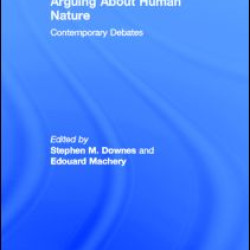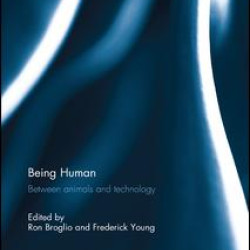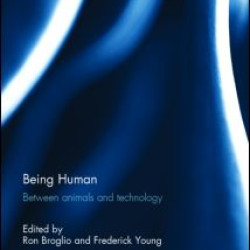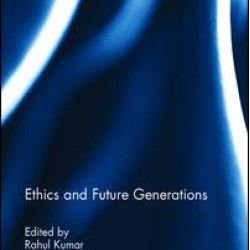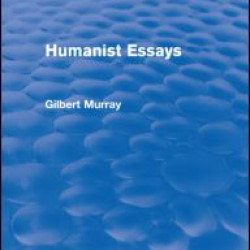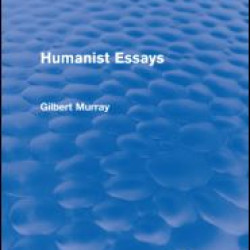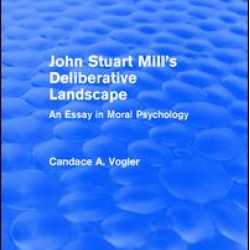Philosophy of Human Nature
Brand: Taylor & Francis
Model: Stock
Arguing About Human Nature covers recent debates--arising from biology, philosophy, psychology, and physical anthropology--that together systematically examine what it means to be human. Thirty-five essays--several of them appearing here for the first time in print--were carefully selected to offer..
₹3,818.14 ₹4,772.68
Brand: Taylor & Francis
Model: Stock
Arguing About Human Nature covers recent debates--arising from biology, philosophy, psychology, and physical anthropology--that together systematically examine what it means to be human. Thirty-five essays--several of them appearing here for the first time in print--were carefully selected to offer..
₹9,180.00 ₹11,475.00
Brand: Taylor & Francis
Model: Stock
Technology and animals often function as boundaries against which we define the human. In this collection of essays, internationally known theorists muddle the categorical boundaries such that animals and technologies become necessary components rather than limits for what it means to be human._x000..
₹2,789.98 ₹3,487.48
Brand: Taylor & Francis
Model: Stock
Technology and animals often function as boundaries against which we define the human. In this collection of essays, internationally known theorists muddle the categorical boundaries such that animals and technologies become necessary components rather than limits for what it means to be human._x005..
₹8,445.60 ₹10,557.00
Brand: Taylor & Francis
Model: Stock
This book examines underexplored themes concerning morality and our relationship to future generations. Would it be morally wrong to allow humanity to go extinct? If not, how many people should there be? By not acting on climate change, are we wronging future generations? It was published as a speci..
₹8,812.80 ₹11,016.00
Brand: Taylor & Francis
Model: Stock
Originally published in 1988, this collection brings together a wide range of original readings on Friedrich Nietzsche, reflecting many aspects of Neitzsche in contemporary philosophy, literature and the social sciences. The Nietzsche these contributors discuss is the Nietzsche who exceeds any attem..
₹8,812.80 ₹11,016.00
Brand: Taylor & Francis
Model: Stock
First published in 1964, this is a short collection of both literary and philosophical essays. Whilst two essays consider Greek literature written at the point at which the Athenian empire was breaking apart, another group explore the background from which Christianity arose, considering Paganism an..
₹2,349.34 ₹2,936.68
Brand: Taylor & Francis
Model: Stock
First published in 1964, this is a short collection of both literary and philosophical essays. Whilst two essays consider Greek literature written at the point at which the Athenian empire was breaking apart, another group explore the background from which Christianity arose, considering Paganism an..
₹8,812.80 ₹11,016.00
Brand: Taylor & Francis
Model: Stock
Understanding hunger is the key to understanding ourselves. While they seem the most obvious things about us, our hungers are also deeply mysterious, arising out of, and casting light on, the unique character of human consciousness. This book takes us through the different levels of our hunger...
₹8,078.40 ₹10,098.00
Brand: Taylor & Francis
Model: Stock
Gilles Deleuze wrote that ‘immanence can be said to be the burning issue of all philosophy. It engulfs sages and gods’. This collection assesses the implications of Deleuze’s claim in relation to the equally potent question of materialism. It was originally published as a special issue of Angelaki: ..
₹7,711.20 ₹9,639.00
Brand: Taylor & Francis
Model: Stock
First published in 1974. As logician, economist, political theorist, practical politician and active champion of social freedom, John Stuart Mill is a figure of continuing importance. In this book the author does full justice to the range of Mill’s achievements, providing an introductory guide to hi..
₹2,129.02 ₹2,661.28
Brand: Taylor & Francis
Model: Stock
First published in 2001, this book sets out to shed light on traditional controversies in Mill scholarship, underscore the significance of the contribution Mill made to associationist psychology, argue he is not entirely successful in explaining why art matters, and that this failure is linked to a ..
₹2,129.02 ₹2,661.28



